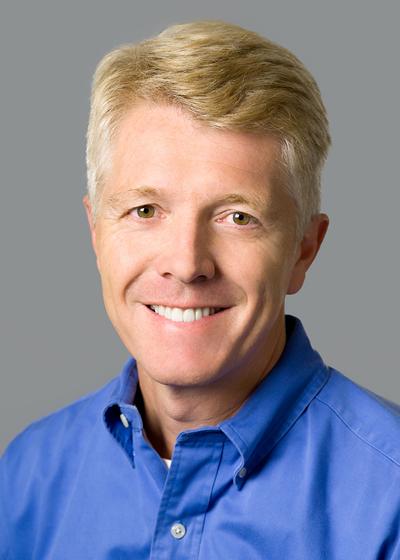Ian Clark BSc Biology, 1981
Chief Executive Officer, Genentech (San Francisco, California, USA)

Biological Sciences alumnus Ian Clark has been appointed Chief Executive Officer at the global pharmaceutical company Genentech.
Pharmaceuticals and biotechs offer tremendous opportunities for young scientists.
Based in San Francisco, California, he also heads North American Commercial Operations at the drug discovery company, owned by Roche, which is using genetic engineering techniques and advanced technologies to develop medicines for a wide range of life-threatening diseases.
Ian graduated from Southampton in 1981 with a BSc in Biology. "My degree was vital to my career in the pharmaceutical and biotech industry" he said. "But funnily enough, when I was at university, I really enjoyed the modules on animal behaviour. I remember we spent time in the New Forest studying the wild deer and investigating whether they could co-exist with cattle in the same area. But I did find genetics fascinating too."
He grew up in Warwickshire and chose to study in Southampton because of the flexibility created by the modular system and the appeal of the city: "I had a great time at university and made some excellent friends. I played and football and hockey; the social life was very good as well." He particularly remembers the lecturer Rory Putnam who encouraged his interest in deer.
When he graduated, Ian set off to travel the world and spent some time in Australia. "I had multiple jobs there, including a couple in sales. When I got back to the UK, it was difficult to get work at that time and a friend of the family suggested I join one of the pharmaceutical industry's management development programs, commencing in sales. Technical knowledge is essential as you're selling directly to doctors and you need to know what you're talking about."
His career in Pharma began at Searle, and led to vice presidential roles in sales and marketing for Sanofi (Aventis) and Ivax in the UK and Eastern Europe. Ian became Chief Operating Officer for Novartis in the UK, then served as president of Novartis Canada, overseeing all operations in that country, before he moved to Genentech in 2003.
"Pharmaceuticals and biotechs offer tremendous opportunities for young scientists - most entrants have a bachelors degree, researchers typically have a PhD" said Ian. "Being part of an organisation that discovers and develops medicines that hugely improve and at times save lives gives you a real sense of purpose."
He is confident that breakthroughs in tackling conditions such as cancer could be made in the next five years. "Looking back, we largely eradicated infectious diseases in the developed world in the last century, then made great strides in treating cardiovascular conditions successfully. We are currently heavily focussed on oncology, developing targeted anti-cancer medicines based on a better genetic understanding of different tumour types." Investigations are also well underway into the causes of Alzheimer's Disease. "You can only make significant progress if you have a thorough biological knowledge of the disease - otherwise, it's a bit like throwing mud at a wall" he explained.
Small spin-out biotech companies from scientists with innovative ideas may also hold the key to drug discovery. Ian sits on the boards of UK biopharm company Vernalis and Dendreon, a biotech firm based in Seattle. All in all, he's come a long way since his days at the School, which he still remembers with affection.
Genentech was founded in 1976, its goal: to develop a new generation of therapeutics created from genetically-engineered copies of naturally occurring molecules important in human health and disease. The company's thousand-strong staff of researchers, scientists and postdocs have secured approximately 7,400 current, non-expired patents worldwide with about 6,250 patent applications pending. Drug discovery research focuses primarily on five areas: oncology, immunology, metabolism, neuroscience and virology.